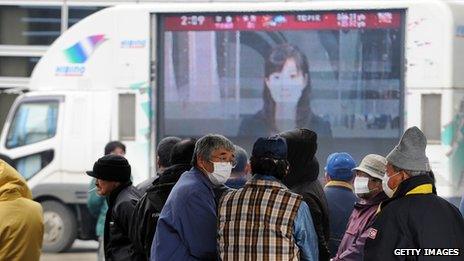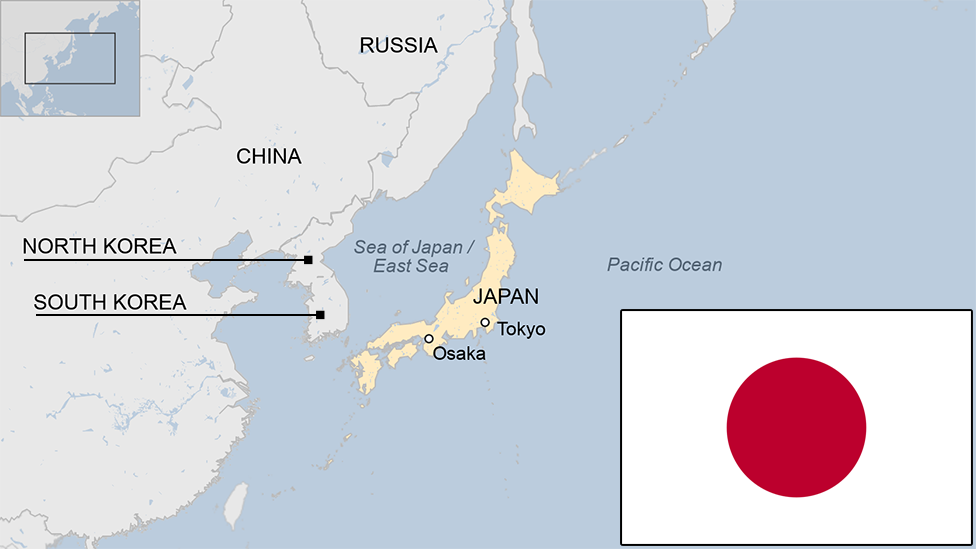Japan's NHK sued over use of English words
- Published

Some older Japanese people would prefer broadcasters did not use "loanwords"
A disgruntled viewer is suing Japan's national broadcaster for "mental distress" caused by an excessive use of words borrowed from English.
Hoji Takahashi, 71, is seeking 1.4 million yen ($14,300; £9,300) in damages from NHK.
"The basis of his concern is that Japan is being too Americanised," his lawyer Mutsuo Miyata told the news agency AFP.
English became more prevalent in Japan after World War II during the US-led occupation.
This was followed by a growing interest in American pop culture.
The country's modern vocabulary is littered with borrowed words, many of which are changed to fit the Japanese phonic structure.
Complaint
Mr Takahashi, who is a member of a campaign group supporting the Japanese language, highlighted words such as "toraburu" (trouble), "risuku" (risk) and "shisutemu" (system) in NHK's news and entertainment programmes.
He accused NHK of irresponsibility by refusing to use native Japanese equivalents.
"With Japanese society increasingly Americanised, Takahashi believes that NHK, as Japan's national broadcaster, shouldn't go with the trend, but remain determined to prioritise the use of Japanese, which he thinks would go a long way toward protecting Japanese culture," Mr Miyata told the Japan Times on Wednesday.
Mr Takahashi filed his complaint on Tuesday with the Nagoya District Court in the central Chubu region of Japan, the newspaper said.
NHK said it would not comment until it had studied the legal documents.
Other examples of English words often used in Japanese include:
terebi (TV)
rajio (radio)
konpuraiansu (compliance)
koraboreeshon (collaboration)
dejitaru (digital)
taoru (towel)
Vocabulary is also borrowed from other foreign languages. The German "arbeit" becomes "arubaito" to mean work, and the Portuguese "pao" is used as "pan" for bread.
Traditionalists in France and French-speaking Canada also worry about the influx of English words into their native tongue.
France's 1994 Toubon Law makes French compulsory in government publications, most workplaces, advertisements, parts of the media and state-funded schools.
However, the French parliament is debating relaxing these rules so that university courses can be taught in English.
Japanese words used in the English language include "haiku", "origami" and "Bonsai".
Other commonly used "loanwords" are the German "kindergarten", "zeitgeist" and "blitz" as well as French terms such as "faux-pas", "decor" and "cafe".
- Published22 May 2013

- Published29 October 2024
